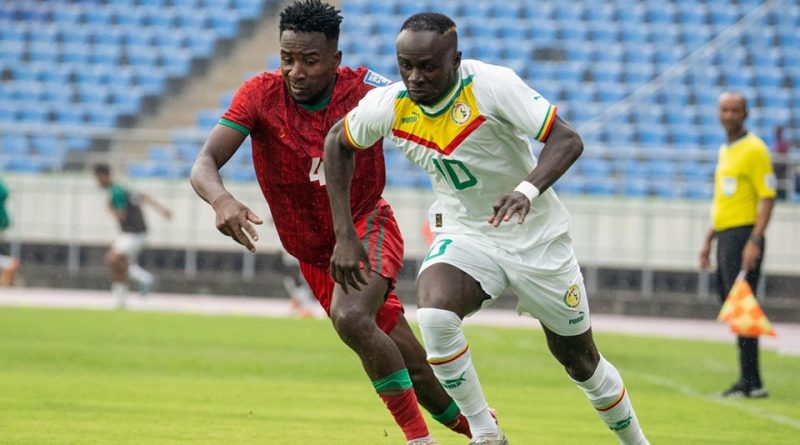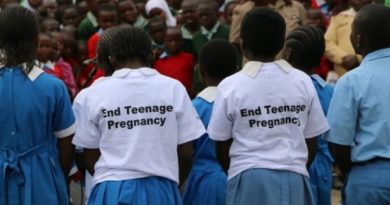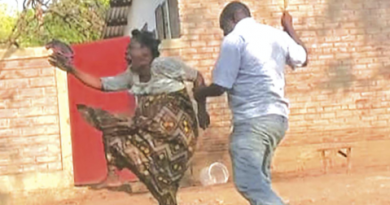Doused Flames of Malawi
By Joseph Kayira
Two latest performances by Malawi national football team, Flames, in Senegal and in Lilongwe in the Africa Cup of Nations (Afcon) qualifiers are seemingly a manifestation of a team that has lost steam and needs a complete overhaul. In the words of one soccer enthusiast, Flames of Malawi are a disgrace to their nation, having assumed the position of continental punch bags. But where are they getting it wrong?
The root cause of all this is the Football Association of Malawi (Fam) itself. Lack of consistence in its programmes has led to this lackluster performance of the national team. The players themselves are a bunch of individuals, feigning wobbly legs, compelling angry fans to ask how they even make it to the national team. The selection process too has become the focus of public attention. Is it a matter of sabotage or underperformance?
In good old days, players who made it to the national team vowed to die for their nation. They sweated blood to bring home results and not reasons. The Flames of today are pathetic. Here is an assembly of players who literally have become tourists, trotting the continent in the name of fulfilling national assignments. You rarely see the talent that was in players who donned national colours in the 1970s, 1980s and 1990s.
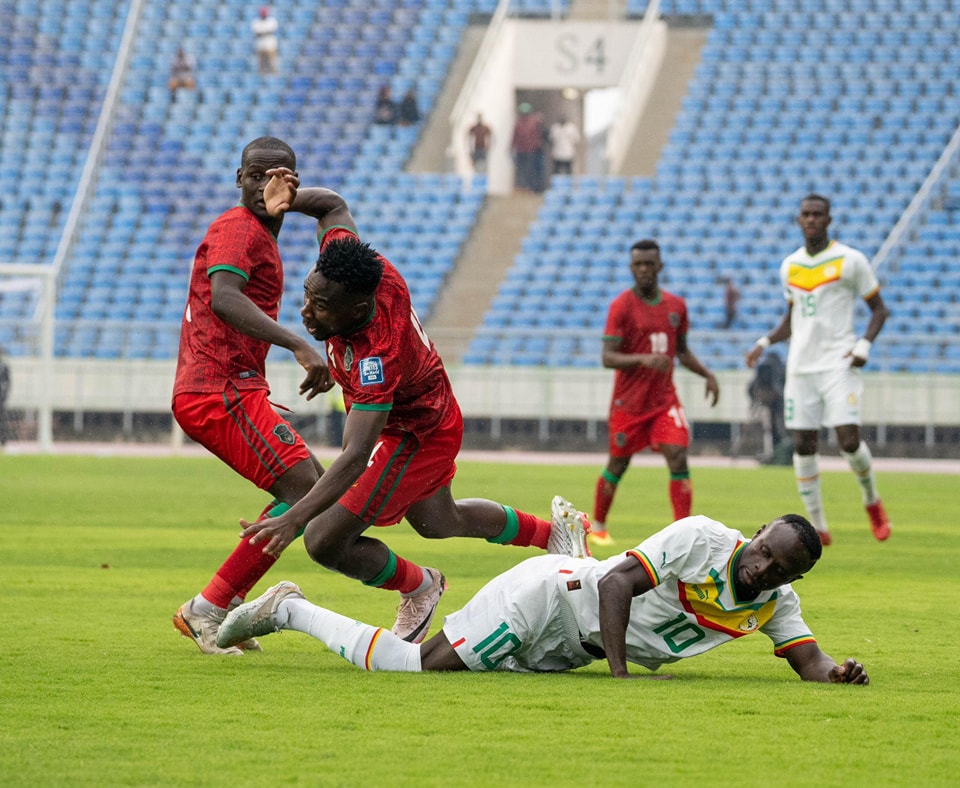
In the thick of things: Malawi versus Senegal
All you come across, at regular intervals, is a group of young men who have no ambition whatsoever, and by a stroke of luck, are on flights to represent Malawi in competitions such as World Cup, Afcon, Chan, Cosafa or some badly organized friendlies. Administrators at Fam, the national team coach and the players have turned into a football circus, offering our neighbours lots of hours of laughter and ridicule. The Flames have qualified for Afcon in 1984 (Ivory Coast), in 2010 (Angola) and in 2021 (Cameroon).
The Nation newspaper veteran journalist and football analyst, Bobby Kabango says this whole drama emanates from the fact that Fam and government are failing to implement proper transition of players who play for the national team. He cites the developments that followed team that qualified for Afcon in Angola in 2010, as a lost opportunity.
“As a nation, we assembled a very good team. The fact that it qualified and played in the finals is reason enough that it was a good team. Sadly, after Angola, as a nation we never made any efforts to replace this team. We needed to build a new team of energetic young stars. I am talking about youngsters such as Robin Ngalande, Atusaye Nyondo, Chimango Kayira, Young Chimodzi Jnr and others.
“That never happened and the results of such laissez-faire attitude to sports is poor performance of Flames. We need to revitalize the Under-17, the Under-20 and the Under-23 project. Give this project five to ten years and the results will be amazing. If we continue running football the way it is done currently, we will remain at the bottom of every competition in which we participate. We definitely need to change,” Kabango says.
He adds that none of the crop of players who featured in the whole Under-17 of 2014 is playing in Flames squad of today. “The whole squad of those promising youths was abandoned; any wonder we are in this football predicament?”
Some football pundits are suggesting that Flames should withdraw from all international competitions for a period of five or more years to embark on a rebuilding process. Thus, all available resources should be channeled towards scouting players, support football academies and adequately fund Under-17, Under-20 and Under-23 squads’ activities.
These teams are the backbone of the senior team. They are the nursery of future Flames, instilling discipline and finetuning the players’ talents and skills. It is rare to have players such as Gabadhino Mhango, who never featured in any of these teams and still make it big on the international scene. Such players come once in a blue moon. The pivotal role of Under-17, Under-20 and Under-23 squads cannot be overemphasized. Their significance in football development is clearer.
The dream of transforming the game of football in Malawi will not come true if maladministration will continue unchecked. Football administrators must rise above petty office politics. For instance, the only team that brought glory back home is Malawi women national football team. They won the regional Cosafa Cup. But the moment they landed home, football politics crept in.
Someone brought up the issue of National Women Football Association’s failure to nominate any of the candidates contesting for Fam president last December. Some of its officials were accused of supporting former Fam president, Walter Nyamilandu, in a contest he lost to incumbent Fleetwood Haiya. Such politics is the reason even the Flames are on a downward spiral.
The moment these officials and their lackeys are let loose, they will surely kill the beautiful game in Malawi. They need to be chastised and get stopped in their tracks. Such officials must be ‘yellow-carded’ for their unsportsmanlike conduct. The positions they occupy are not personal estates; rather they are public and funded by the public purse for the good of football.
Another key point worth considering, is to go for Malawian players who are in diaspora. Several names of players have come up, and these individuals are willing to beef up Flames squad. In all this, there is no trace of commitment from Fam and government that something is being done in this respect, thus far.
Kabango says countries like Nigeria, Tanzania, Mozambique and Gabon among others, have benefitted from a legion of players plying their trade outside countries of their forefathers. Malawi too stands to benefit from sons of the soil, playing on foreign soil around the globe, if authorities can move with speed.
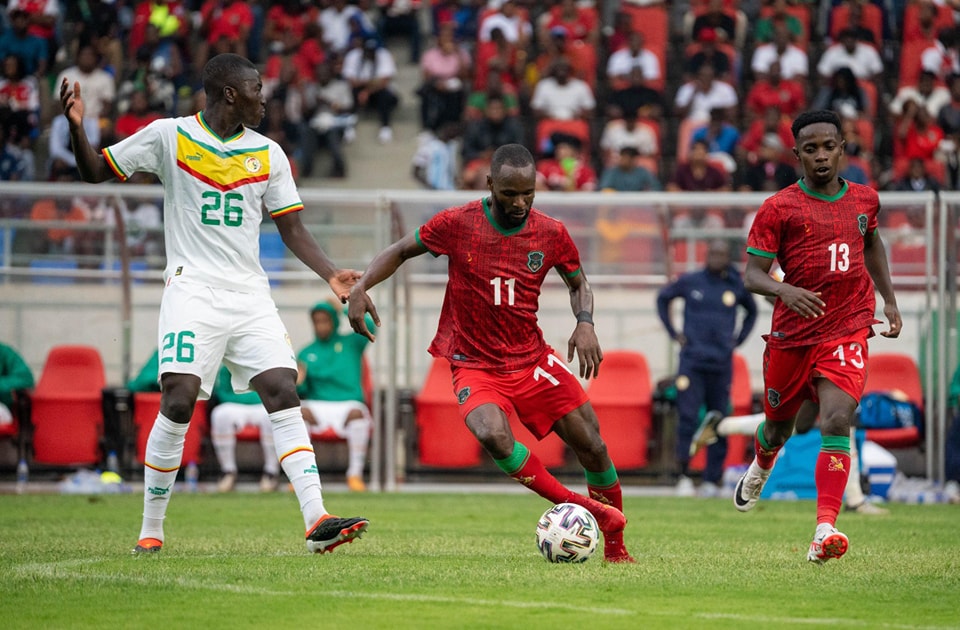
Malawi pushing forward in search of a goal
“For Malawi, there are more than 10 players out there who can help to beef up our squad. Ministry of Foreign Affairs and International Corporation and Fam should be working hand in hand to process all the necessary documents such as passports and visas for these players. But the process is worryingly slow, and at times, giving an impression that some people are not interested to implement it,” Kabango says.
With a problematic scouting process, and with coaches who are compelled to work on a shoe-string budget, the future of Flames cannot be guaranteed. Additionally, with players who are clueless, Flames will remain regional and continental minnows for a very long time.
“And Fam should stop the tendency of giving coaches targets which are unrealistic. We must start with a rebuilding process before talking about ambitions to have the team qualify for finals, be it in Afcon, Cosafa or any other competition. There is just a lot of work to do to put Flames on the map again; and that work starts now,” Kabango says.

